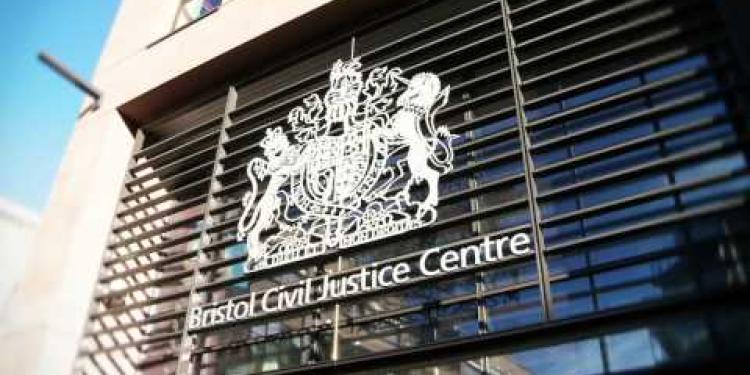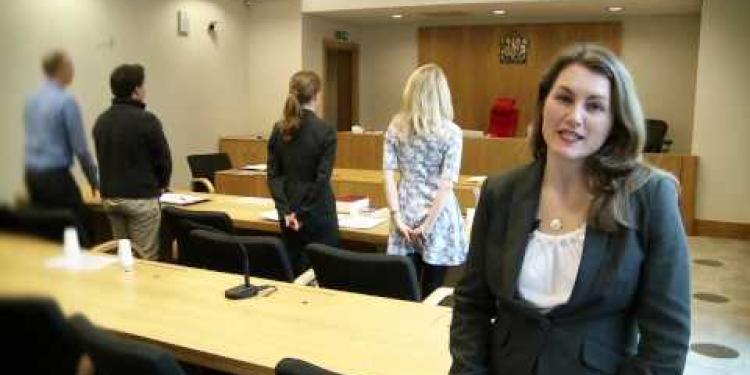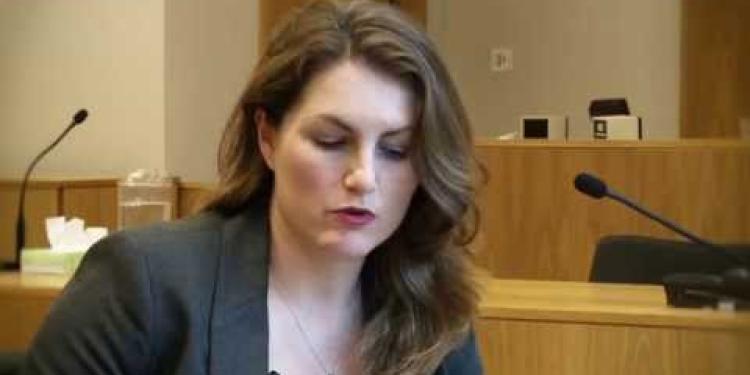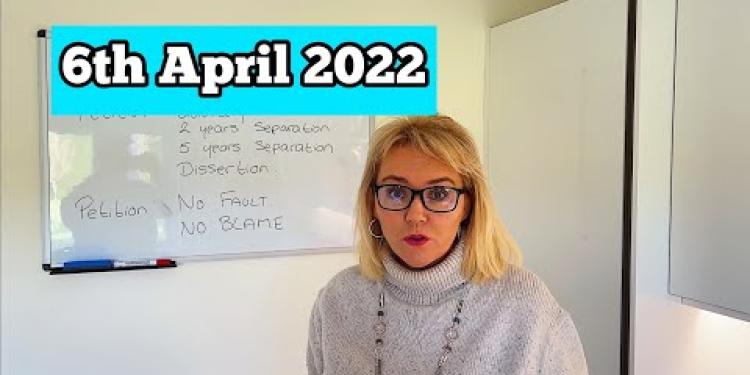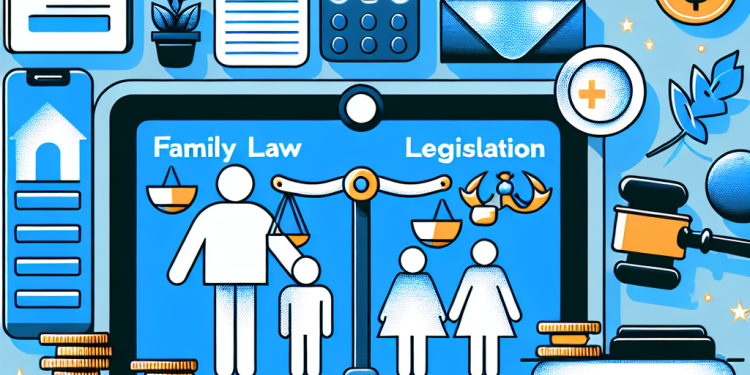Important Information On Using This Service
- Ergsy carefully checks the information in the videos we provide here.
- Videos shown by YouTube after a video has completed have NOT been reviewed by ERGSY.
- To view, click the arrow in the center of the video.
Using Subtitles and Closed Captions
- Most of the videos you find here will have subtitles and/or closed captions available.
- You may need to turn these on and choose your preferred language.
Turn Captions On or Off
- Go to the video you'd like to watch.
- If closed captions (CC) are available, settings will be visible on the bottom right of the video player.
- To turn on captions, click settings.
- To turn off captions, click settings again.
Find A Professional
More Items From Ergsy search
-
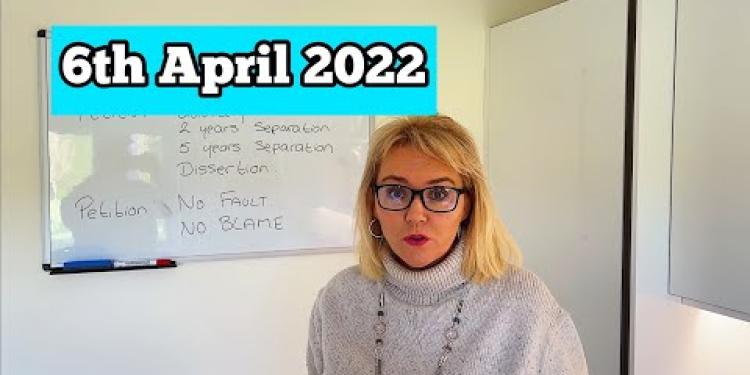
NO FAULT DIVORCE (What is there to know)
Relevance: 100%
-

Divorce - How To Rebuild Your Life After Losing Everything
Relevance: 100%
-

Divorce UK (England and Wales) | UK Divorce Process and Overview Explained PART 1 | BlackBeltBarrister
Relevance: 97%
-

A Guide to the Divorce Process
Relevance: 91%
-

I'm Getting a Divorce | Tips From a Divorce Lawyer
Relevance: 89%
-

Understanding Your Rights in Divorce Proceedings
Relevance: 69%
-

Understanding Your Rights During Divorce Proceedings in the UK
Relevance: 61%
-

Divorce Step By Step - Form E - Capital
Relevance: 53%
-

Navigating Post-Divorce Finances Amidst Economic Challenges
Relevance: 45%
-
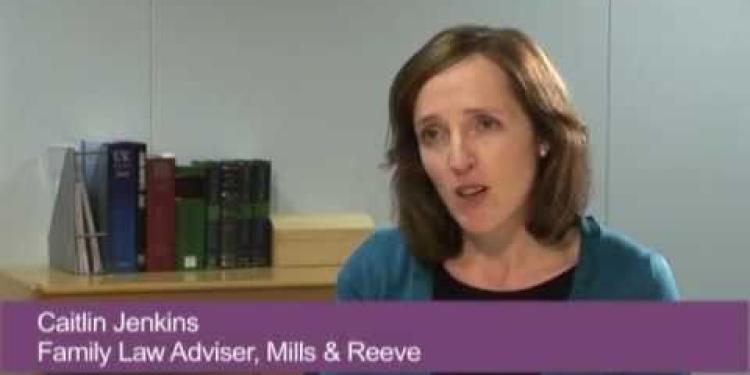
Divorce UK: What happens with the money in a divorce?
Relevance: 44%
-

Ultimate Guide to Financial Disclosure on Divorce in the UK
Relevance: 27%
-

Navigating Changes in Family Law Post-Brexit
Relevance: 23%
-

The 4 Steps to Agree a Financial Settlement on Divorce UK
Relevance: 21%
-
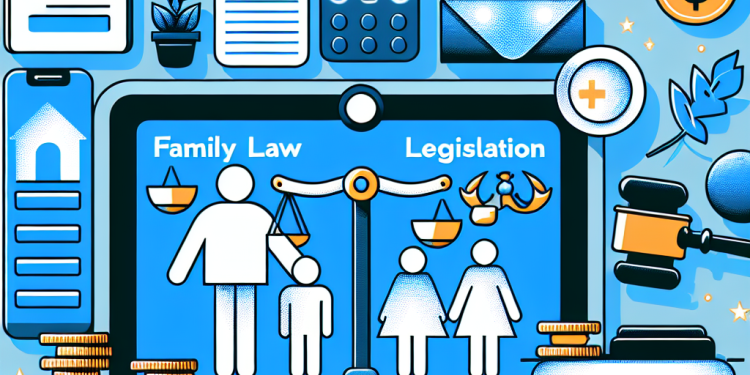
Impacts of Recent Changes to Family Law Legislation
Relevance: 15%
-
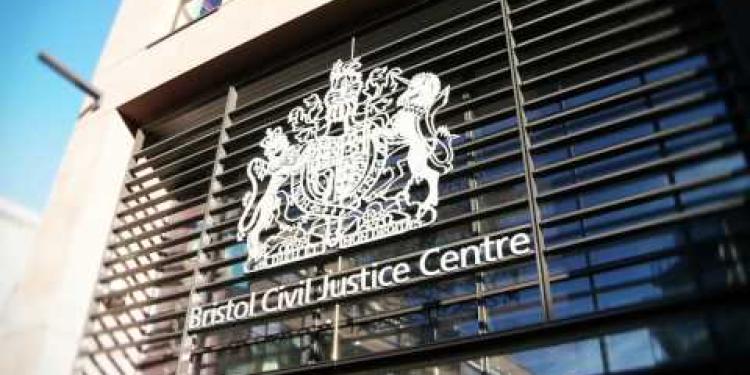
The Family Court without a Lawyer - Video 1 of 3
Relevance: 15%
-

The Family Court without a Lawyer
Relevance: 11%
-
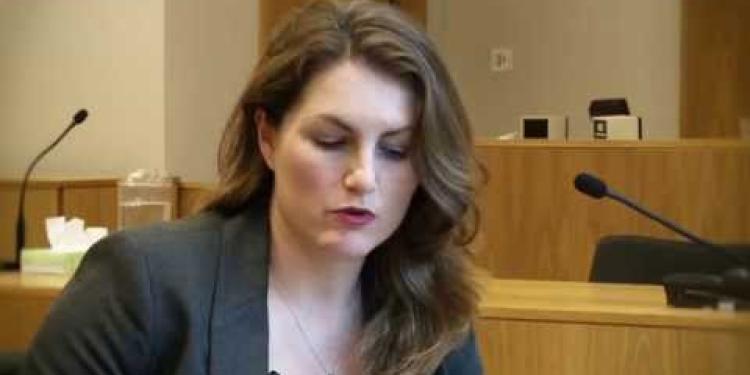
The Family Court without a Lawyer - Video 3 of 3
Relevance: 10%
-
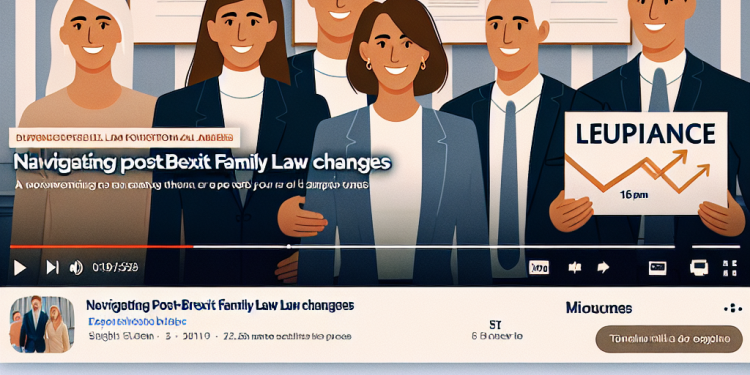
Navigating Post-Brexit Family Law Changes
Relevance: 8%
-

Helen Starkie, Solicitor, Bath, UK
Relevance: 7%
-
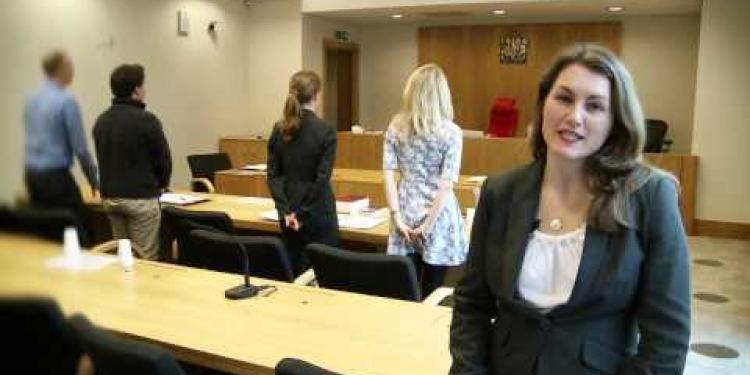
The Family Court without a Lawyer - Video 2 of 3
Relevance: 6%
-

How To Protect Family Assets | Trusts Explained UK
Relevance: 6%
-

BSL - Causes of panic disorder
Relevance: 4%
-

How to represent yourself in family court in England and Wales
Relevance: 3%
-

TRUSTS EXPLAINED I HOW TO PROTECT FAMILY ASSETS
Relevance: 3%
-

Understanding Mental Health in Children
Relevance: 1%
-

Helen Starkie, Bath Solicitor for Wills and Probate Law
Relevance: 1%
-
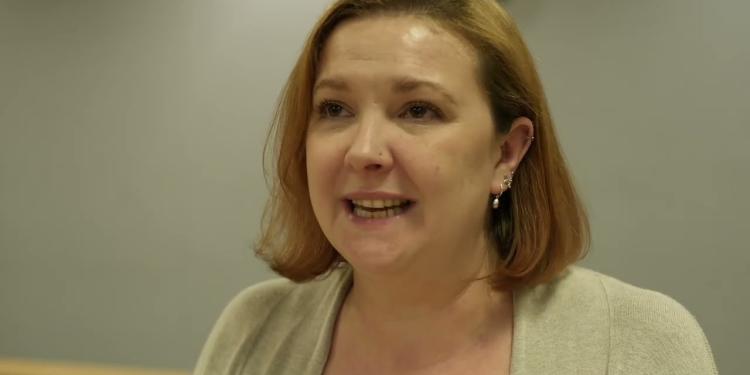
Magistrates in the Family Court: A Private Law Case
Relevance: 1%
-
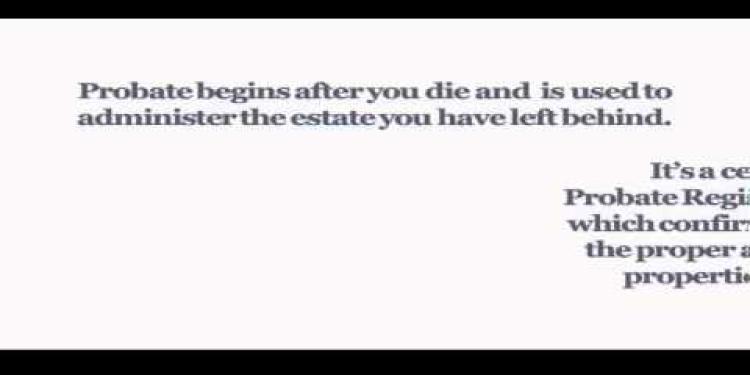
Will and Probate Solicitor Bath
Relevance: 1%
-

Navigating Child Custody Laws in the UK
Relevance: 1%
Divorce UK: What Happens with the Money?
Divorce can be a challenging and complex process, especially when it comes to dividing finances. In the UK, the distribution of money and assets during a divorce is governed by a set of legal principles designed to ensure fairness for both parties. This guide provides an overview of what happens with the money in a UK divorce.
Understanding Matrimonial Assets
Matrimonial assets are those acquired during the course of the marriage, such as family homes, joint savings, and pensions. These assets are typically divided between both parties. The division is based on an assessment of each party's financial needs, contributions, and circumstances.
Non-Matrimonial Assets
Non-matrimonial assets are those acquired before the marriage or received as gifts or inheritance. Usually, these assets are not divided unless they have been mingled with matrimonial assets or are needed to meet one party’s financial requirements.
Spousal Maintenance
Spousal maintenance, also known as 'spousal support' or 'alimony', may be awarded to one partner. This is typically considered when one party requires financial assistance post-divorce. The duration and amount depend on the length of the marriage, the applicant's needs, and the payer's ability to pay.
Child Maintenance
Child maintenance is a mandatory provision regardless of the financial settlement between the spouses. The non-resident parent is required to contribute to the child’s upbringing based on their income. The Child Maintenance Service (CMS) provides a guideline for such payments.
Pensions
Pensions are significant assets and can be divided during divorce. The options include pension sharing orders, pension offsetting, and pension attachment orders. Each method has different implications and must be carefully considered.
Financial Agreements and Court Orders
Couples can reach a financial agreement through negotiation, mediation, or collaborative law. If an agreement is reached, it should be formalized by a consent order approved by a court. If an agreement cannot be reached, the court will make a financial order based on various factors, including income, future needs, and the welfare of any children involved.
In conclusion, dividing money and assets during a UK divorce can be complex and requires careful consideration of all factors involved. Legal advice is often crucial to ensure a fair and reasonable financial settlement.
Divorce UK: What Happens with the Money?
Divorce means ending a marriage. It can be hard, especially when you split money and things. In the UK, there are rules to make it fair for both people. This guide tells you what happens to money in a UK divorce.
Understanding Matrimonial Assets
Matrimonial assets are things you get while married. This includes family homes, savings, and pensions. These are usually shared between both people. The split depends on what each person needs and what they gave during the marriage.
Non-Matrimonial Assets
Non-matrimonial assets are things you had before getting married or got as gifts or inheritance. These are not usually split unless mixed with other assets or needed for one person’s needs.
Spousal Maintenance
Spousal maintenance means money that one person might need after divorce. This is also called ‘alimony’. The amount and time depend on how long the marriage was, what the person needs, and if the other person can pay.
Child Maintenance
Child maintenance is money for children. The parent who does not live with the child pays this. The amount depends on their income. The Child Maintenance Service helps decide how much should be paid.
Pensions
Pensions are important in divorce. They can be shared in different ways. This needs careful thinking because each way is different.
Financial Agreements and Court Orders
Couples can agree on money by talking. If they agree, they get a legal paper called a consent order. If they cannot agree, the court decides based on money, needs, and what's best for kids.
To end, splitting money and things in divorce can be tough. It is important to get legal help to make sure it's fair.
Frequently Asked Questions
How is money divided in a divorce in the UK?
In the UK, money and assets are divided based on what is considered 'fair' rather than a strict 50/50 split. The court considers factors such as the length of the marriage, each party's financial needs, and contributions made by each spouse.
What happens to the family home in a divorce?
The family home can be sold and the proceeds divided, one party can buy out the other’s share, or one party can continue to live in the home with arrangements for selling at a future date. The decision is based on what is fair and reasonable for both parties.
Do we need to go to court to divide our money and assets?
Not necessarily. Many couples reach an agreement through negotiation or mediation. However, if you cannot agree, the court may need to be involved to make a decision.
Does it matter whose name is on the asset?
In divorce proceedings, all assets acquired during the marriage are generally considered joint assets, regardless of whose name is on the ownership documents.
What is a financial settlement?
A financial settlement is a legally binding agreement that sets out the financial arrangements between divorcing parties, including division of assets, income, pensions, and any ongoing financial commitments.
How are pensions divided in a divorce?
Pensions accumulated during the marriage are considered part of the marital assets and can be divided in several ways, including pension sharing orders, pension offsetting, or earmarking orders.
What if one spouse earned all the income during the marriage?
Courts consider contributions made by both parties, including non-financial contributions like homemaking and childcare. Both financial and non-financial contributions are valued in the settlement process.
Can a prenuptial agreement affect the division of money?
Yes, a prenuptial agreement can influence the division of assets, but it is not automatically legally binding. Courts will consider it, especially if it is fair and both parties had legal advice at the time of signing.
What is spousal maintenance?
Spousal maintenance is financial support paid by one spouse to the other after divorce. It is awarded based on factors like the recipient's financial needs, the period of time needed for them to become financially independent, and the payer’s ability to provide support.
How are debts divided in a divorce?
Debts are considered part of the financial pot and are divided fairly between both parties. This includes credit card debt, loans, and mortgages.
Can we agree on a financial settlement without lawyers?
Yes, couples can agree on a financial settlement without lawyers, but it is advisable to seek legal advice or mediation to ensure the agreement is fair and legally sound.
What is a Clean Break Order?
A Clean Break Order is a court order that terminates any financial ties between divorcing spouses, ensuring that neither party can claim money or assets from the other in the future.
How long does it take to get a financial settlement?
The time to reach a financial settlement varies, but typically it can take several months. The process can be quicker if both parties are cooperative and reach an agreement through negotiation or mediation.
Can I keep my inheritance in a divorce?
Inheritance received by one spouse may be considered a non-matrimonial asset, but if it has been mingled with marital assets or used for the family, it may be considered during the division of assets.
What if my spouse tries to hide assets?
Both parties are legally required to fully disclose their assets. If a spouse is found to be hiding assets, the court can impose penalties and the hidden assets will be taken into account in the settlement.
How do people share money in a divorce in the UK?
When two people get a divorce, they need to share their money and things. In the UK, the court helps decide how to do this fairly. They look at what each person needs and what they own.
Get Help
If you are unsure, you can ask a lawyer for help. They can explain how things work. There are also advice websites you can read.
Other Tips
Using tools like picture dictionaries or simple checklists can help you understand better. Reading with a friend or family member can also be useful.
In the UK, when people divide money and things they own, they try to make it 'fair' for everyone, not just split it in half. The court looks at things like how long the marriage lasted, what each person needs, and what each person gave to the marriage.
What happens to the family home when parents get a divorce?
When parents decide to split up, they might wonder about the family home. Here is what could happen:
- One parent might stay in the home with the kids.
- The home might be sold, and the parents share the money.
- Parents might take turns living there with the kids.
Talking to a family helper, like a mediator or lawyer, can make this easier. They can help everyone decide what is best.
The family house can be sold, and the money shared between both people. One person can pay to own the whole house. Or one person can keep living in the house, and they can agree to sell it later. The choice depends on what is fair for both people.
Do we have to go to court to split our money and things?
Not always. Many couples can talk and decide together. They might also get help from a mediator. A mediator is a person who helps people agree. But if they still can't agree, they might need a judge in court to decide for them.
Does it matter whose name is on the asset?
Is it important whose name is on something valuable you own?
Think about who should be responsible for it.
Tools like 'Read Aloud' can help if you find reading hard.
You can also ask someone to explain it to you.
When people get divorced, everything they got while they were married is usually shared between them. It doesn’t matter whose name is on the paperwork that says who owns it.
What is a financial settlement?
Money agreement
When people agree on how to share money, it is called a financial settlement.
They decide who gets what money or things.
If you need help, you can ask someone you trust.
Using a calculator can also help you understand numbers better.
A financial settlement is an important agreement made by people who are splitting up. It decides how to share money, things of value, savings for the future, and any regular payments.
What happens to pensions when people get divorced?
When people get divorced, they need to decide what to do with their pensions. A pension is money saved for when you stop working.
Here are some ways pensions can be split:
- Sharing: You split the pension money between both people.
- Offsetting: One person keeps the pension, but the other person gets more of something else, like a house.
- Earmarking: One person will get some of the pension money when the other starts using it.
If you need help, you can:
- Talk to a lawyer who knows about divorce.
- Speak with a financial advisor for advice.
When you get married, you might save money for later, called a pension. When you split up, this money is part of what you have to share. You can share it in different ways, like dividing it, trading it for something else, or saving it for later.
What if only one person made money in the marriage?
Sometimes, one person works and makes all the money in a marriage. This is okay. The other person might do other important things, like taking care of the home or children.
It is important to know that everything is shared in a marriage, even if only one person is earning money. Both people should talk and make decisions together about money.
Here are some tips to help:
- Talk Together: Sit down and talk about money. Decide together what to do with it.
- Share Decisions: Both people can say how they feel about money needs and plans.
- Use Tools: A simple budget app or notebook can help track what you both spend.
- Ask for Help: If it's hard, you can ask a financial advisor or family member for advice.
Remember, both people are important in a marriage, whether they make money or not.
Court looks at how both people helped in the relationship. This means things like earning money or looking after the home and children. Both types of help are important when sharing what they own.
Can a prenup change how we split money if we divorce?
Yes, a prenuptial agreement can affect how things are shared if you separate. But it is not always the final decision. Courts will look at it, especially if it is fair for both people and they both got help from a lawyer when they signed it.
What is spousal maintenance?
Spousal maintenance is money one person gives to their ex-partner after a breakup or divorce. It helps the ex-partner pay for things they need.
Here’s how it works:
- When people who are married or were once married split up, sometimes one person has more money than the other.
- The person with more money may need to give some to the other person. This is called spousal maintenance.
- The money can help pay for things like food, clothes, or a place to live.
If you find this hard, here are some tips:
- Ask someone you trust to help you understand.
- Use a dictionary to look up words you don’t know.
- Write down questions you have and ask a helper.
Spousal maintenance is money that one person gives to their ex-husband or ex-wife after they get divorced. This money helps take care of the person who needs it. The amount of money they get depends on what they need, how long they need help to take care of themselves, and how much money the other person can give.
Who pays the money owed in a divorce?
When people who are married decide to live apart, they may owe money. This is called debt. It is important to know who will pay these debts.
Sometimes both people have to pay back the money. Other times, one person may have to pay more than the other. It depends on many things.
If you need help, ask someone you trust or talk to a professional. They can help explain how debts should be split.
Debt is money you owe. It is part of your money that needs to be shared fairly between both people. This includes money from credit cards, loans, and home loans.
To help understand this better, you can use tools like pictures or charts. These can make it easier to see how money is shared.
Can we make a money agreement without lawyers?
Yes, you can make a money agreement without lawyers. Here are some simple steps to help:
- Talk openly: Discuss with the other person what you both want.
- Write it down: Make notes of what you agree on.
- Use a calculator: A calculator can help you add up sums correctly.
- Get help: Ask a friend or family member you trust to help you understand.
Remember, it's important that both people feel happy with the agreement.
Yes, a couple can decide on money matters without using lawyers. But it's a good idea to ask a lawyer or mediator for help. They can make sure the decision is fair and follows the law.
What is a Clean Break Order?
A Clean Break Order is when two people who were married make an agreement. This means they both agree to not ask each other for money in the future. Everyone can then move on and start fresh.
Here are some tools that might help you understand:
- Use pictures or drawings to show what this means.
- Ask someone you trust to explain it to you.
A Clean Break Order is a special paper from the court. It says that two people who were married and are now getting a divorce will no longer share money or things. This means they can't ask each other for money or things ever again.
How long until you get money sorted out?
It might take a while to settle money things after a split. People often ask, "When will I get my money sorted?" The time can change. It depends on what both people have, like houses or savings.
Here are some tips to help:
- Ask a grown-up you trust for help.
- Write down what you agree on.
- Use a calendar to mark important days.
It can take a few months to agree on money. It goes faster if both sides work together and talk things over.
Can I keep my inheritance if I get divorced?
When one person in a marriage gets money or property from someone who died, it usually belongs just to them. This is called inheritance. But if they mix it with things they share with their husband or wife, like a bank account or buying things for the family, it can be shared if they break up.
What if my husband or wife hides money or things?
If you think your husband or wife is hiding money or things, you can do a few things:
- Talk to a lawyer. A lawyer can help you find hidden money or things.
- Use a money helper. A money helper, called a "financial adviser," can look for hidden money.
- Write down what you know. Keep a list of money or things you think are hidden.
- Ask the court to help. A judge can ask your husband or wife to show all money and things.
Try using these steps to find out the truth and get what is fair.
Both people must tell the truth about what they own. If someone hides what they own, the court can give them a punishment. The hidden things will be added when deciding how to share everything.
Useful Links
Useful links from: Divorce UK (England and Wales) | UK Divorce Process and Overview Explained PART 1 | BlackBeltBarrister
- NHS - Coping with divorce The NHS provides guidance and advice on dealing with the emotional and mental health impacts of divorce and separation.
- Relate - Divorce and Separation Support Relate offers advice, relationship counselling, workshops, and mediation services to support people going through divorce or separation.
- Citizens Advice - Advice for Divorcing or Separating Citizens Advice provides information on the process of getting divorced, including legal advice, financial considerations, and child custody issues.
- Mind - Support through Divorce Mind offers resources and support for mental health issues related to divorce, helping individuals manage the emotional and psychological challenges.
Useful links from: Divorce - How To Rebuild Your Life After Losing Everything
- NHS - Tips on rebuilding your life after divorce The NHS provides tips and resources on how to look after your mental health and rebuild your life after a divorce, focusing on emotional wellbeing and seeking support.
- Relate - Divorce and Separation Support Relate offers guidance and counselling support for anyone going through a divorce. They focus on emotional support and practical advice to help you move forward.
- Mind - Coping with a breakup or divorce Mind is a UK charity that provides advice and support to empower anyone experiencing a mental health problem. They offer a guide to coping with separation and divorce.
- Turn2us - Financial support after a divorce Turn2us helps people in financial need gain access to welfare benefits, charitable grants and other financial help, during and after a divorce.
Useful links from: Understanding Your Rights in Divorce Proceedings
- NHS - Help for domestic violence and abuse NHS resource offering guidance and support for individuals experiencing domestic violence, including services that might be useful during divorce proceedings.
- Relate - Understanding Divorce Relate provides comprehensive information to help you understand your rights and the processes involved in divorce.
- Rights of Women - Family Law Rights of Women offers a range of resources and legal advice on family law, including divorce, to support women's legal rights.
- Citizens Advice - Ending a Marriage Citizens Advice provides detailed information on the steps involved in ending a marriage and understanding your legal rights throughout the divorce process.
Useful links from: Handling Inheritance Disputes Legally
- NHS: Dealing with grief and loss Provides information and support for handling grief and loss, which can be useful in the context of inheritance disputes.
- Citizens Advice: Disputing a Will Offers guidance on what to do if there is a dispute over a will, covering legal steps and support options.
- Age UK: Making a Will Information on making a will, which can help prevent disputes from arising, and advice on what to do if there is a dispute.
- The Law Society: Inheritance Disputes Provides comprehensive information about handling inheritance disputes legally, with guidance on finding legal support.
Useful links from: Impacts of Recent Changes to Family Law Legislation
- NHS - Support for Parents Information and support for parents, including the impact of recent family law changes, provided by the NHS.
- Relate - How Changes in Family Law Can Affect You A UK charity providing support and advice on how recent family law changes can affect family relationships and parenting.
- Citizen's Advice - Family Law Citizen's Advice offers guidance on family law, including information on recent legislative changes and how they may impact families.
- Family Lives - Family Law Changes Family Lives provides advice and resources on how the latest changes to family law legislation impact families.
Useful links from: Navigating Child Custody and Visitation Rights in Modern UK
- NHS - Child Custody: Rights and Welfare Provides information on child custody, focusing on the rights and welfare of the child. Includes guidance on legal processes and resources for ensuring the child's best interests.
- NSPCC - Child Custody and Parenting After Separation Offers resources and advice on handling child custody and parenting responsibilities following separation. Ensures that child safety and well-being are prioritized during custody arrangements.
- Relate - Parental Separation and Child Custody Relate provides support and counseling for families experiencing separation and divorce, focusing on child custody issues. Offers practical advice to ensure children’s emotional and psychological needs are met.
- Gingerbread - Child Custody and Contact Arrangements Gingerbread offers guidance for single parents, including detailed information on child custody and contact arrangements. Provides support to help navigate legalities and maintain healthy relationships.
Useful links from: Understanding Your Rights: Legal Support for Families During Economic Turbulence
- Citizens Advice Provides free, independent, confidential, and impartial advice to everyone on their rights and responsibilities. They offer help across a wide range of issues including legal support, debt advice, and benefits guidance.
- Turn2us A national charity helping people in financial hardship to gain access to welfare benefits, charitable grants, and support services. Their website includes tools and resources to find support and advice for managing during economic turbulence.
- NHS - Help with Health Costs Information from the NHS on what financial support is available to help with health costs, including prescriptions, dental services, and optical care. This resource can be crucial for families trying to manage their healthcare expenses.
- Shelter A charity that provides advice and support for those facing housing and homelessness issues. Shelter offers legal guidance on tenant rights, eviction protection, and other housing-related legal matters, which can be vital during economic crises.
Useful links from: Navigating Post-Brexit Family Law Changes
- UK Government - Family Law after Brexit Official UK government guidance on handling family law disputes following Brexit, including jurisdiction and enforcement of family law decisions.
- NHS - Family and Relationships Support NHS resource offering support and advice on family and relationship issues, with potential impacts of legal changes post-Brexit.
- Citizens Advice - What Brexit means for your family law Citizens Advice provides detailed resources on how Brexit impacts family law, including child custody, maintenance, and divorce.
- Relate - Brexit and Relationship Support Relate offers advice and support for individuals and families affected by changes in relationship law due to Brexit.
Useful links from: Understanding Your Rights During Divorce Proceedings in the UK
- NHS - Mediation Information from the NHS on mediation services, which can be a helpful resource during divorce proceedings to resolve disputes amicably.
- Relate - Divorce and Separation Relate is a UK charity that provides relationship support, including guidance on separation and divorce. This resource can help you understand your rights and the support available.
- Citizens Advice - Ending a marriage Citizens Advice offers comprehensive information on the legal aspects of ending a marriage, including your rights and the processes involved.
- Women's Aid - Divorce and Financial Aid Women's Aid provides guidance specifically for women, including information on divorce and financial settlements, ensuring your rights are protected during the process.
Useful links from: Navigating Post-Divorce Finances Amidst Economic Challenges
- NHS: Sorting Out Your Finances After Separation This NHS page provides advice on how to manage your finances after a separation or divorce, including tips for budgeting, seeking financial advice, and understanding your entitlements.
- Citizens Advice: Dealing with Debt and Money Problems Citizens Advice offers a comprehensive guide to managing debt and money issues, providing practical steps and resources for individuals facing financial difficulties post-divorce.
- Relate: Getting Help with Debt After Divorce Relate, a leading charity focusing on relationships, provides guidance on coping with debts and financial pressures following a divorce, including how to start afresh and rebuild financial stability.
- Turn2us: Financial Assistance for Individuals Turn2us is a UK charity that helps people in financial hardship access welfare benefits, charitable grants, and other financial support services. They offer specific advice for individuals going through divorce or separation.
Useful links from: Navigating Changes in Family Law Post-Brexit
- NHS - Divorce and Separation NHS page providing advice on coping with emotional and practical issues related to divorce and separation.
- Relate Relate offers counseling services for individuals and families dealing with relationship issues, including those arising from family law changes post-Brexit.
- Citizens Advice Citizens Advice provides information and support on various family law matters, helping individuals understand their rights and navigate legal changes post-Brexit.
- Rights of Women Rights of Women offers legal advice and information specifically to women, including matters of family law impacted by Brexit.
Useful links from: Upcoming Changes to Parental Leave Policies in the UK
- NHS - Maternity and Paternity Leave An overview of maternity and paternity leave, including entitlement, pay information, and links to additional resources provided by the NHS.
- Maternity Action - Parental Leave Maternity Action provides detailed guidance on parental leave policies, including upcoming changes, rights, and benefits for parents in the UK.
- Working Families - Policy and Campaigns Keep up-to-date with the latest news and campaigns on parental leave policies from Working Families, a leading UK charity focused on work-life balance.
- Gingerbread - Employment Rights Gingerbread offers detailed advice on employment rights, including parental leave and entitlements for single-parent families in the UK.
Useful links from: Navigating the Changes to Parental Leave Regulations
- NHS Employers - Parental Leave NHS Employers provides detailed information on the policies and guidelines for parental leave, helping NHS staff navigate the regulations effectively.
- Gov.uk - Parental Leave The official UK government website offers comprehensive details and eligibility criteria for statutory parental leave, along with how to apply.
- Working Families - Parental Leave Advice Working Families, a UK-based charity, provides up-to-date advice and support for parents and carers on navigating parental leave and the associated rights and benefits.
- NCT - Maternity and Paternity Leave The National Childbirth Trust (NCT) offers guidance and resources on maternity and paternity leave, helping new parents understand their entitlements.
Useful links from: Divorce Step By Step - Form E - Capital
- NHS - Divorced or Separated: Supporting your Mental Health This NHS page offers advice on how to look after your mental health during a divorce or separation, including coping strategies and where to find support.
- Relate - Help with Divorce and Separation Relate is a UK charity that provides relationship support, including advice and counselling services for those going through separation and divorce.
- Citizens Advice - Getting a Divorce Citizens Advice offers guidance on the legal and practical aspects of getting a divorce in the UK, including an overview of Form E and financial settlements.
- Gingerbread - Single Parents and Divorce Gingerbread is a UK charity that provides advice and support for single parents, including information on how to navigate divorce and separation.
Useful links from: The Family Court without a Lawyer
- NHS - Support for Families Going to Court Information and resources provided by the NHS for families who are going to court without a lawyer. Offers guidance on what to expect and how to prepare.
- Citizen's Advice - Going to Court Comprehensive guidance from Citizen's Advice on handling court proceedings, including family court, without legal representation.
- Family Rights Group A charity organization offering advice and support for families involved in child protection and family court proceedings. Provides guides, resources, and helplines.
- National Family Mediation Charity specializing in family mediation services to help resolve disputes and issues without going to court. Includes information on mediation as an alternative to court and how it works.
Useful links from: The Family Court without a Lawyer - Video 1 of 3
- NHS - Mental health and wellbeing The NHS provides extensive information and support for mental health and wellbeing, which can be particularly useful when dealing with the stress of family court proceedings.
- Relate - The Relationship People Relate is a UK-based charity offering counselling and support for relationships, including services that can help those navigating family court without legal representation.
- Family Action - Supporting Families Family Action provides practical, emotional, and financial support to families in need, helping those who are managing family court cases on their own.
- Mind - Mental Health Support Mind is a UK-based charity offering support and advice for mental health issues, which can be beneficial for individuals facing the stress and challenges of family court.
Useful links from: The Family Court without a Lawyer - Video 2 of 3
- NHS - Mental Health Support Provides resources and helplines for mental health support, essential during stressful court processes.
- Mind - Mental Health Charity A UK charity offering advice and support to empower anyone experiencing a mental health problem.
- Relate - Relationship Support Offers counselling, support and information for all relationships, helping with family disputes and issues.
- Citizens Advice Provides free and impartial advice to people on their rights and responsibilities, including family court guidance.
Useful links from: The Family Court without a Lawyer - Video 3 of 3
- NHS Mental Health Services Information about mental health services available through the NHS, including support for stress and anxiety, which can be helpful when dealing with family court issues.
- Relate A UK charity that offers relationship support, which can be valuable for individuals and families going through the family court process.
- Mind A leading mental health charity in the UK providing advice and support to empower anyone experiencing a mental health problem, useful for those dealing with the stress of family court.
- Citizens Advice Offers free, confidential information and advice to assist people with legal, debt, and housing issues, including family court matters.
Useful links from: NO FAULT DIVORCE (What is there to know)
- NHS - Divorce and Separation This NHS page offers guidance on mental health and wellbeing during divorce and separation, providing practical advice and resources.
- Relate - No-Fault Divorce Relate provides comprehensive information on no-fault divorce, including how it works, its benefits, and how to cope with the emotional aspects of separation.
- Citizens Advice - Ending a Marriage Citizens Advice offers detailed guidance on the process of ending a marriage, including the legal aspects of no-fault divorce and support services available.
- Gingerbread - Information for Single Parents: Divorce Gingerbread provides resources for single parents navigating divorce, including legal advice, emotional support, and practical tips on managing the transition.
Useful links from: How to represent yourself in family court in England and Wales
- NHS - Getting legal support This NHS page provides an overview of how to obtain legal support, including information about legal aid and representation.
- Citizens Advice - Going to court Citizens Advice provides comprehensive guidance on the court process, how to prepare, and what to expect when representing yourself in family court.
- Family Lives - Support and Advice Family Lives offers advice on navigating family court, including how to represent yourself and what support is available.
- CAFCASS - Representing Yourself in Family Court The Children and Family Court Advisory and Support Service (CAFCASS) provides guidance on representing yourself in family court, including considerations when children are involved.
Useful links from: Ultimate Guide to Financial Disclosure on Divorce in the UK
- NHS - Getting Divorced This NHS page provides important information on the emotional and psychological support available to individuals going through a divorce. It also offers links to marital counselling and other relevant resources.
- Relate - Divorce and Separation Relate is a UK charity that provides relationship support, including help for those going through a divorce. This page offers advice, counselling services, and information on managing the financial and emotional aspects of divorce.
- Citizens Advice - Getting a Divorce Citizens Advice offers a comprehensive guide on the divorce process in the UK, including financial disclosure, legal requirements, and how to seek assistance and support.
- Gingerbread - Information for Single Parents Gingerbread is a UK charity dedicated to single parents. This page provides detailed advice on navigating divorce, particularly from a financial perspective, and offers support services for single parents.
Useful links from: I'm Getting a Divorce | Tips From a Divorce Lawyer
- NHS - How to Cope with Relationship Breakdown Practical advice and tips from the NHS on how to cope with the emotional stress of a relationship breakdown or divorce.
- Relate - Divorce and Separation Relate provides counselling services to help individuals and families manage the process of divorce and separation.
- Citizens Advice - Getting a Divorce Citizen's Advice offers comprehensive information on the legal aspects of getting a divorce, including processes and what to expect.
- Gingerbread - Supporting Single Parent Families Gingerbread supports single parent families with resources and advice on handling divorce and separation.
Useful links from: A Guide to the Divorce Process
- NHS - Getting a Divorce The NHS provides information on the emotional and mental health impacts of divorce, including advice on how to cope with stress and where to seek further help.
- Relate - Divorce & Separation Relate offers counselling and support services to help individuals and families going through divorce or separation, with resources on managing conflict, communication, and emotional well-being.
- Citizens Advice - Ending a marriage Citizens Advice provides detailed guidance on the legal and practical steps involved in ending a marriage, including how to initiate divorce proceedings and considerations for children and finances.
- Childline - Dealing with Divorce Childline offers advice and support specifically for young people dealing with their parents' divorce, including coping strategies and ways to express their feelings.
Useful links from: The 4 Steps to Agree a Financial Settlement on Divorce UK
- NHS - Getting a Divorce An overview from the NHS providing general information and guidance on divorce and separation, including emotional and practical support.
- Relate - Help with Divorce and Separation Relate is a UK-based charity offering advice and counseling services for those dealing with divorce and separation. They provide resources for managing the emotional and legal aspects.
- Citizens Advice - Getting a Divorce Citizens Advice offers detailed, practical advice on the process of getting a divorce in the UK, including financial settlements and your options.
- Gingerbread - Separation and Divorce Gingerbread is a UK charity that supports single-parent families. Their resources include guidance on negotiating financial settlements during divorce.
More Videos of Interestdiagnosis
Have you found an error, or do you have a link or some information you would like to share? Please let us know using the form below.
- Ergsy carfully checks the information in the videos we provide here.
- Videos shown by Youtube after a video has completed, have NOT been reviewed by ERGSY.
- To view, click the arrow in centre of video.
- Most of the videos you find here will have subtitles and/or closed captions available.
- You may need to turn these on, and choose your preferred language.
- Go to the video you'd like to watch.
- If closed captions (CC) are available, settings will be visible on the bottom right of the video player.
- To turn on Captions, click settings .
- To turn off Captions, click settings again.



